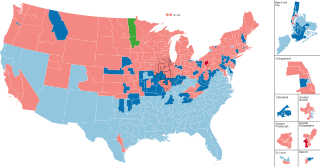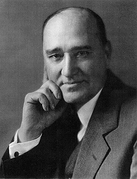| ||||||||||||||||||||||||||||||||||||||||||||||||||||||||||||||||||||||||||||||||||||||||||
All 435 seats in the United States House of Representatives 218 seats needed for a majority | ||||||||||||||||||||||||||||||||||||||||||||||||||||||||||||||||||||||||||||||||||||||||||
|---|---|---|---|---|---|---|---|---|---|---|---|---|---|---|---|---|---|---|---|---|---|---|---|---|---|---|---|---|---|---|---|---|---|---|---|---|---|---|---|---|---|---|---|---|---|---|---|---|---|---|---|---|---|---|---|---|---|---|---|---|---|---|---|---|---|---|---|---|---|---|---|---|---|---|---|---|---|---|---|---|---|---|---|---|---|---|---|---|---|---|
| ||||||||||||||||||||||||||||||||||||||||||||||||||||||||||||||||||||||||||||||||||||||||||
 | ||||||||||||||||||||||||||||||||||||||||||||||||||||||||||||||||||||||||||||||||||||||||||
| ||||||||||||||||||||||||||||||||||||||||||||||||||||||||||||||||||||||||||||||||||||||||||
The 1922 United States House of Representatives elections were elections for the United States House of Representatives to elect members to serve in the 68th United States Congress. They were held for the most part on November 7, 1922, though Maine held its on September 11. They occurred in the middle of President Warren G. Harding's term. Just as voters had expressed their distrust of Wilson in 1920, now voters had a chance to express the widespread feeling that Congress had failed to address economic problems, especially the brief but sharp economic recession of 1921–1922. Most of the seats that Republicans lost had long been held by Democrats, who now returned with an even stronger base in the major cities.[2]
The Republican Party lost a net of 77 seats to the opposition Democratic Party. The Republicans were neither unified nor well led, and they could boast of very few successes except tax cuts and higher tariffs that pleased manufacturing interest but raised consumer prices.[3] With Senator Bob La Follette as their unofficial leader, some progressives formed a small but highly vocal group on the left of the Republican Party. Former Progressives from 1912 who had supported Theodore Roosevelt mostly refused to support LaFollette, who had been a bitter enemy of Roosevelt. Republicans nonetheless retained a narrow majority, although splits in the party made it difficult for Harding to govern. In Minnesota, the Farmer–Labor Party, also gained several seats. The Democrats showed their greatest support in the industrial cities, where the Irish and German element returned to that party. In addition, there was growing support among the more recent immigrants, who had become more Americanized. Many ethnic families now had a veteran in their midst, and paid closer attention to national issues, such as the question of a bonus for veterans. There was also an expression of annoyance with the federal prohibition of beer and wine, and the closing of most saloons.[4][5]
This was the first election after the completion of the 1920 United States census. However, the Republican-controlled Congress failed to reapportion the House membership prior to the 1922 election, and therefore the congressional districts remained based on the 1910 census for another decade. This failure to reapportion may have been politically motivated, as Republicans may have feared the effect such a reapportionment would have on their future electoral prospects.[6][7]
- ^ September 11, 1922, in Maine
- ^ James Ciment, Encyclopedia of the Jazz Age: From the end of World War I to the Great Crash (2008) 1:195-96
- ^ Ciment, 195-96.
- ^ David Burner, The Politics of Provincialism: The Democratic party in transition, 1918–1932 (1968)
- ^ Ciment, Encyclopedia of the Jazz Age (2008) 1:195-96, 263-64, 2:298-305, 2:519-23
- ^ Balinski, Michel; Young, H. Peyton. Fair Representation, Meeting The Ideal of One Man One vote. p. 51.
- ^ "Congressional Apportionment". NationalAtlas.gov. Archived from the original on February 28, 2009. Retrieved February 15, 2009.
Cite error: There are <ref group=lower-alpha> tags or {{efn}} templates on this page, but the references will not show without a {{reflist|group=lower-alpha}} template or {{notelist}} template (see the help page).
© MMXXIII Rich X Search. We shall prevail. All rights reserved. Rich X Search


